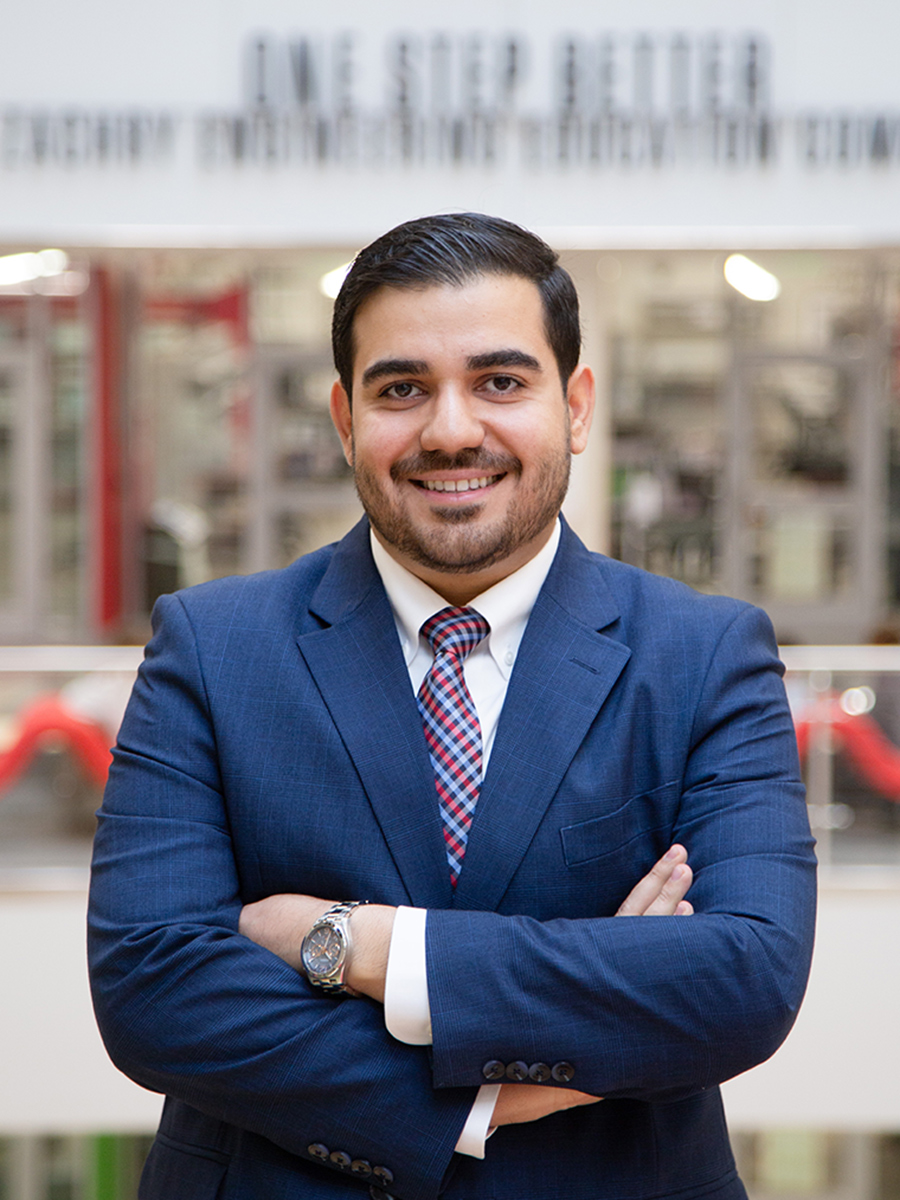Did you know that most of the world's natural gas reserves remain untapped? Across the globe, numerous pockets of natural 'stranded' gasses go unused due to remote locations, the distance from markets, or a lack of pipeline access.

Abdullah Al-Aboosi, a doctoral student in the Department of Multidisciplinary Engineering at Texas A&M University, is hoping to solve this problem as part of a team of researchers working to convert stranded gases into a clean and usable fuel source.
This research project is a collaboration between Al-Aboosi and two Texas A&M faculty members — Wei Zhan, an engineering technology & industrial distribution professor, and Dr. Mahmoud El-Halwagi, a chemical engineering professor. Dr. Fadhil Al-Aboosi with RAPID Manufacturing Institute for Process Intensification also assisted with the simulation and modeling.
Al-Aboosi is researching electro-decarbonization, the transition from using fossil fuels (gas, oil, coal) to low-carbon electricity. Electro-decarbonization aims to reduce carbon emissions across various sectors, including industry, transportation and infrastructure, by using renewable and efficient energy sources such as electricity, wind and solar power.
"The projected demand for gas and oil continues to rise," Al-Aboosi said. "This underscores the importance of identifying alternative, clean energy fuels capable of satisfying our daily energy needs."
One way to do this is by converting stranded natural gas into methanol, which is contained in many household chemicals such as antifreeze, paint thinner and windshield wiper fluid. Methanol is an exceptionally versatile clean-energy source with many applications. Its affordability and relatively low emissions make it suitable for vehicle combustion, boiler fuel, energy storage and electricity conversion in generators.
As part of the research, Al-Aboosi contributed to the development of a small methanol modular. This modular can be installed quickly in isolated areas and transported more efficiently. By converting stranded natural gas into methanol through renewable energy sources such as wind and solar power, the researchers hope to lower carbon emissions that occur during the current process.
The projected demand for gas and oil continues to rise. This underscores the importance of identifying alternative, clean energy fuels capable of satisfying our daily energy needs.
Additionally, this process would prevent the release of excess CO2 from the system. The flow back water from the natural gas is processed for reuse in the methanol system, thus minimizing CO2 emissions.
The ability to predict wind and solar data without relying on a complete dataset is a limitation in many renewable energy projects. The team’s research streamlines the planning and design phases and enhances the feasibility of deploying renewable systems in regions where traditional data collection methods may be impractical.
This represents a significant leap forward in renewable energy and has opened up new possibilities for designing and implementing sustainable energy solutions.
The impact of the researchers' work extends beyond technological developments. Al-Aboosi hopes their work paves the way for the widespread adoption of renewable energy and that it contributes to global efforts to minimize reliance on non-renewable resources.
Al-Aboosi and his collaborators presented their preliminary results at the 2023 AIChE Conference last November.